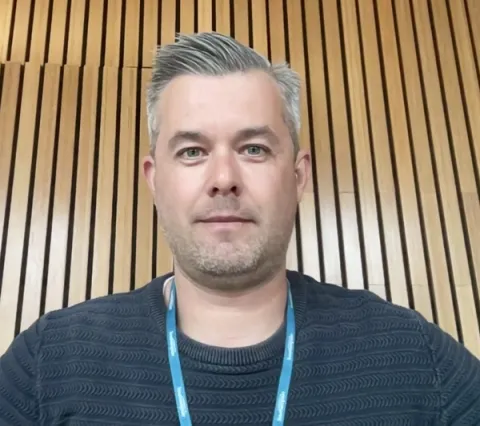Project overview
This award aims to develop a human cell-based skeletal growth plate organ-on-a-chip to replace the use of rodents in some studies of development, ageing and disease.
The growth plate is an area of tissue near the ends of children’s long bones that determines skeletal development. In vivo studies on the growth plate typically use rodents by developing transgenic models to replicate diseases such as dysplasia or by surgically destabilising the knee joint under anaesthesia. In vitro models currently do not replicate some key features of the growth plate, such as the gradient between bone and cartilage and the presence of blood vessels. This limits the replacement potential of these models. Professor Martin Knight and Dr Angus Wann will use human bone marrow-derived stem cells with a gradient of differentiation cues to develop an organ-on-a-chip model of the growth plate, including a vascular channel to mimic blood vessels. To encourage uptake of the model, the project uses commercially available cells and has partnered with Emulate, an organ-on-a-chip biotech company, who will publish protocols and characterisation data for use by other researchers.
This award was made as part of the BBSRC/NC3Rs joint call for the development of next generation non-animal technologies (NATs).
The growth plate is an area of tissue near the ends of children’s long bones that determines skeletal development. In vivo studies on the growth plate typically use rodents by developing transgenic models to replicate diseases such as dysplasia or by surgically destabilising the knee joint under anaesthesia. In vitro models currently do not replicate some key features of the growth plate, such as the gradient between bone and cartilage and the presence of blood vessels. This limits the replacement potential of these models. Professor Martin Knight and Dr Angus Wann will use human bone marrow-derived stem cells with a gradient of differentiation cues to develop an organ-on-a-chip model of the growth plate, including a vascular channel to mimic blood vessels. To encourage uptake of the model, the project uses commercially available cells and has partnered with Emulate, an organ-on-a-chip biotech company, who will publish protocols and characterisation data for use by other researchers.
This award was made as part of the BBSRC/NC3Rs joint call for the development of next generation non-animal technologies (NATs).
